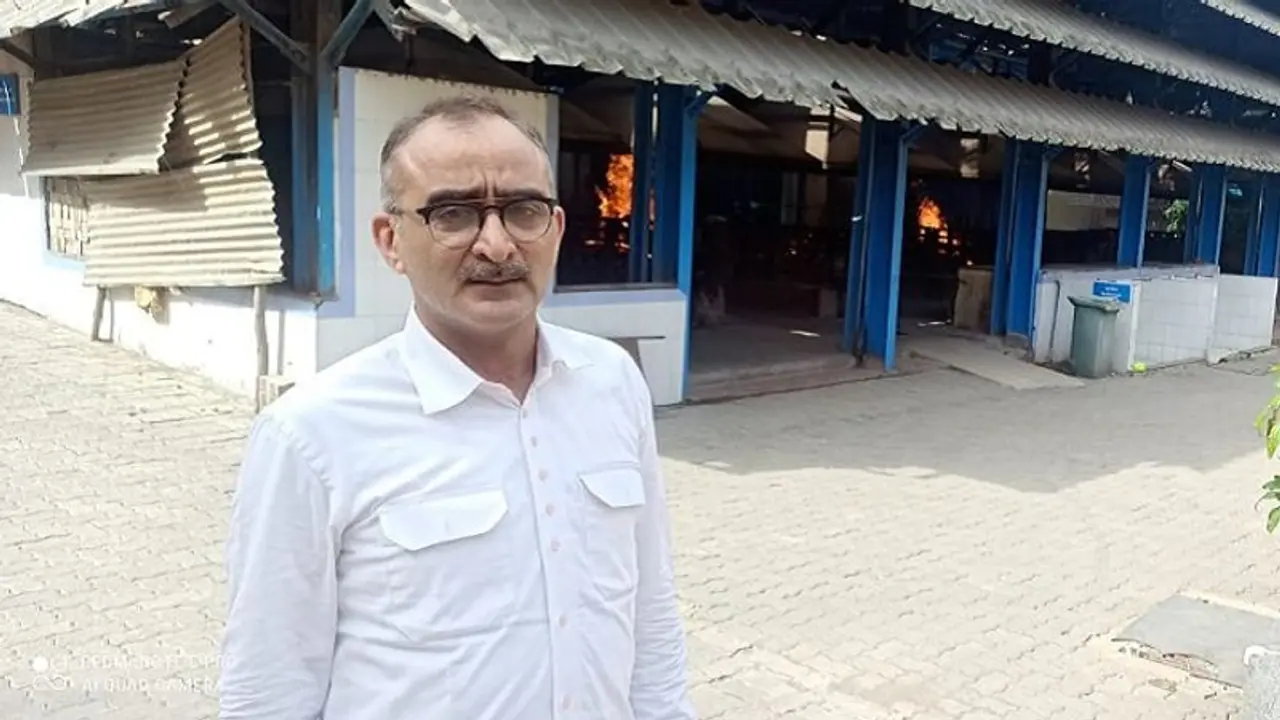In the dire circumstances of the Covid 19 pandemic, Mohammad Iqbal Mamdani, a resident of Mumbai, emerged as a saviour for the unclaimed dead. Throughout the entire COVID-19 pandemic, he and his team managed the cremation of nearly 2,000 bodies.
Mumbai: In the dire circumstances of the Covid 19 pandemic, Mohammad Iqbal Mamdani, a resident of Mumbai, emerged as a saviour for the unclaimed dead. During the pandemic, he and his team conducted the cremation of around 2,000 bodies. Today, unclaimed bodies in Mumbai continue to find their final rest through his efforts. Iqbal Mamdani mentioned that so far, he and his team have cremated a total of 5,000 bodies, bidding farewell to 100 to 125 unclaimed bodies every month.
The cruelty of the pandemic
During the COVID-19 pandemic of 2020, when news of someone's passing surfaced, it often triggered turmoil in localities. The initial COVID-related death in Mumbai's Malvani area heightened this fear to such an extent that even close relatives declined to cremate the deceased, leaving the municipality to handle the matter.
In the first case, it was found out that the deceased person was a Muslim. The last rites were to be performed as per Islamic customs, and both the Muslim and Christian communities expressed their concerns. Subsequently, the government revised the circular related to the last rites for COVID-related deaths.
Searching for humanity
Mohammad Iqbal Mamdani, reflecting on this situation, felt that humanity was at stake. People were unwilling to handle the remains of their own loved ones, and this situation prompted him to offer the last rites that the deceased deserved. Initially, a group of seven people was formed, and within about 20 to 22 days, a team of approximately 200 individuals had formed.
They commenced by performing the last rites for Muslim bodies, but when Mamdani observed that people in hospitals were reluctant to touch the deceased, he extended their assistance to Hindu bodies as well. Throughout the entire COVID-19 pandemic, they managed the cremation of nearly 2,000 bodies.
Facing challenges
Iqbal Mamdani and his team faced numerous challenges during their efforts. Initially, there was a lack of support, and no one was willing to provide ambulances to transport bodies to cemeteries or crematoriums. In response, they repaired five old ambulances and found three more, and designated separate vehicles for transporting the deceased and patients. This marked the beginning of their work, which required them to spend months in hospitals. Their daily routines and lives were drastically altered by this selfless effort.
Being the support
Along with the support of friends, priests, and crematorium workers, Mohammad Iqbal took on the responsibility of cremating deceased bodies according to Hindu customs in Palghar, Thane, and Navi Mumbai. All of these efforts were carried out with the necessary approvals from the local administration. As they continued their work, they noticed that some bodies in hospitals remained unclaimed.
With no one willing to perform the last rites, the Mumbai Police, upon witnessing their dedicated work, granted permission for the cremation of such unclaimed bodies. When the Railway Police became aware of these efforts, they also reached out for assistance.
Even though the era of the COVID-19 epidemic has passed, Iqbal Mamdani's dedicated team continues to perform the last rites for 100 to 125 unclaimed bodies every month in Mumbai. The team comprises 12 individuals from diverse religious backgrounds, ensuring that the deceased receive the last rites in accordance with their respective faith.
Mamdani Health and Education Trust
Iqbal Mamdani's family established the Mamdani Health and Education Trust years ago, and it became active during the COVID-19 pandemic. The last rites for the deceased are carried out by Mamdani's team under this trust. The financial costs are covered by family members, friends, and others. While they face challenges in paying salaries to ambulance workers, they are actively working on seeking support from the general public by creating a website for the Mamdani Health and Education Trust to sustain this important work.
Bidding farewell with dignity
Mamdani emphasizes the importance of conducting the last rites with dignity and on time. He believes that the deceased were significant members of our society, and it's their duty to send them to Muktidham (a place of final rites) with the utmost respect. After the cremation of several unclaimed bodies, the families sometimes learn about it, and they come to meet him as a result.
